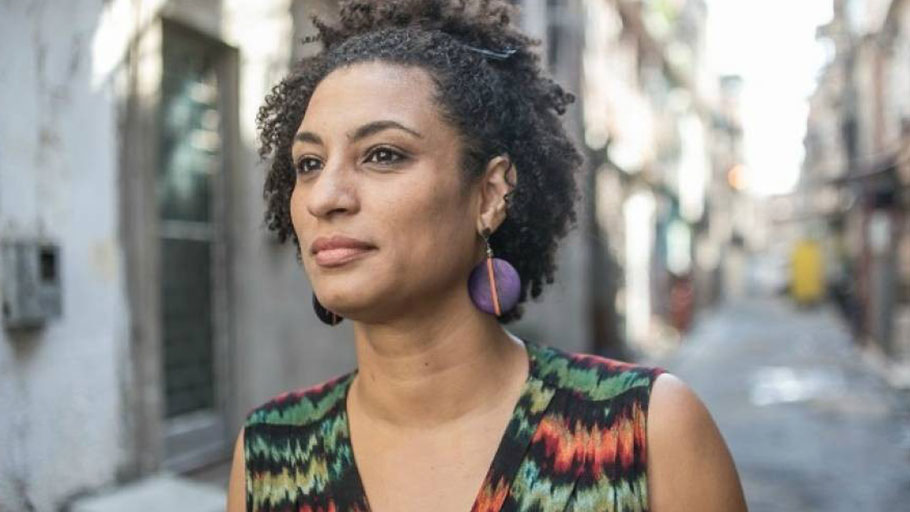
The name and image of Marielle Franco—an intersectional representation of the many wars being fought—serves as more than just a reminder. By Tanya Rawal-Jindia — March 14 will mark the…

The name and image of Marielle Franco—an intersectional representation of the many wars being fought—serves as more than just a reminder. By Tanya Rawal-Jindia — March 14 will mark the…
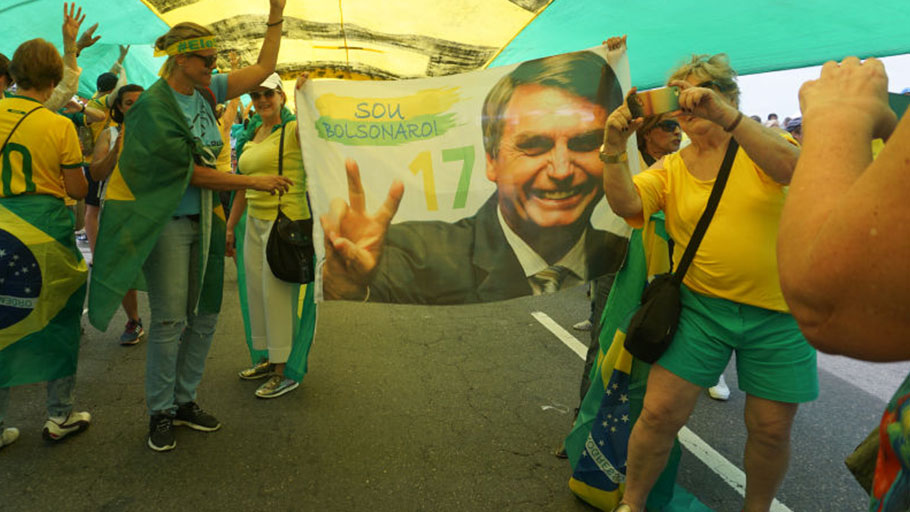
It’s Complicated: Why Some Afro-Brazilians Are Willing to Vote for a Racist Presidential Candidate Who’s Calling for More Police Violence. Kiratiana Freelon, The Root — Last week, Jair Bolsonaro, Brazil’s white, hard-right presidential candidate, received an unexpected American endorsement. “He sounds like us,” said David Duke, an unabashed white supremacist and former Grand Duke Wizard of the Louisiana Ku Klux Klan. “He is a total European descendant, he looks like any…
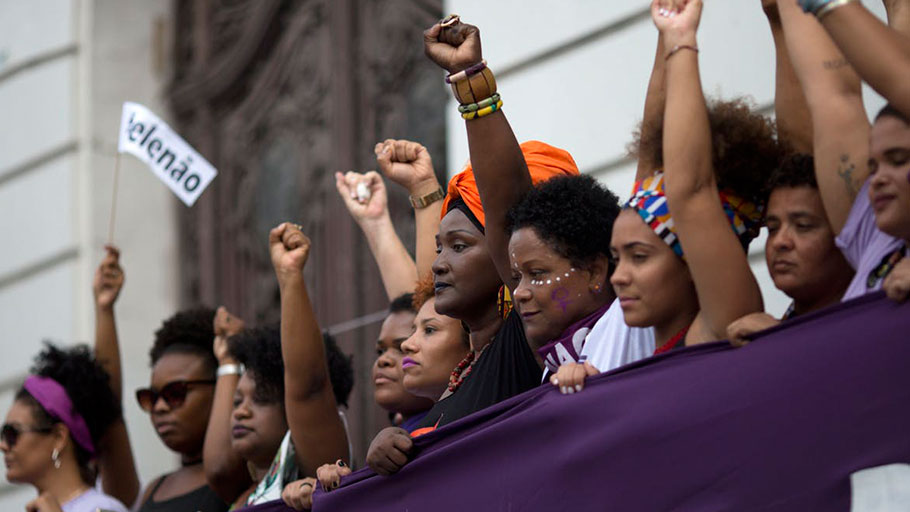
By Kia Lilly Caldwell, The Conversation — Motivated in part by President Donald Trump’s disparaging remarks about women and the numerous claims that he committed sexual assault, American women are running for state and national office in historic numbers. At least 255 women are on the ballot as major party congressional candidates in the November general election. The surge includes a record number of women of color, many of whom say their candidacies reflect a personal…
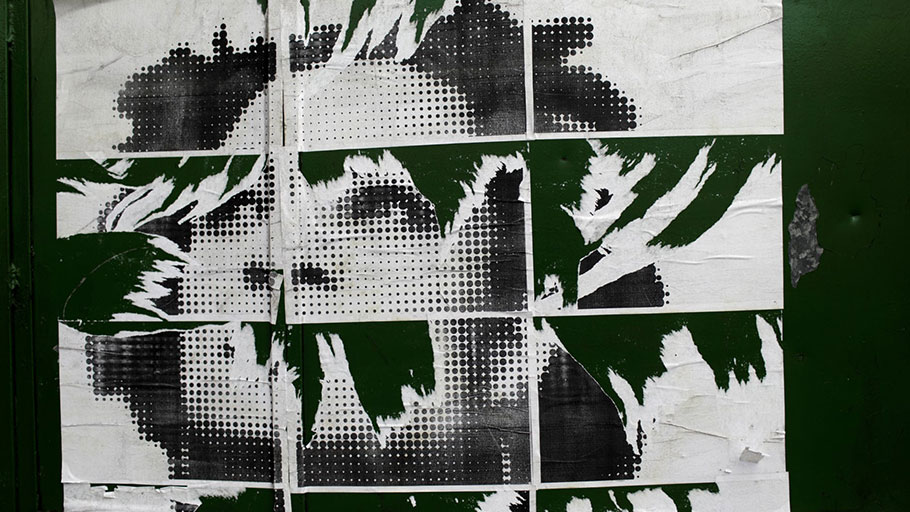
Marielle Franco set an example in a country where black women make up 28% of population but hold 2% of congressional seats By Anna Jean Kaiser, The Guardian — The…

Ever since his “It’s not like I’m black, you know?” comment, Neymar has served as a focal point in Brazil’s cultural reckoning with racism, whitening, identity and public policy. By Cleuci de Oliveira, New York Times — Years before he became the most expensive player in the world; before his Olympic gold medal; before the Eiffel Tower lit up with his name to greet his professional move from Barcelona to…
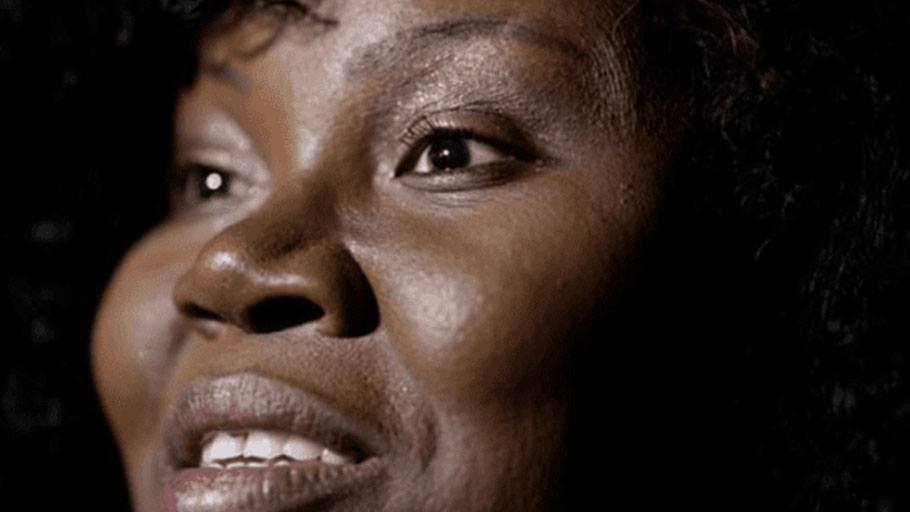
They represent Favela Front of Brazil, a political movement attempting to unify the voting power of favelas and other poor black neighborhoods historically overlooked and underrepresented in Brazilian politics. By teleSUR — Let’s have a round of applause for our companion Marielle, who was one of our greatest supporters in this process,” Afro-Brazilian filmmaker Anderson Quack, who is running for Congress, told a cheering crowd of nearly 200 people assembled late Tuesday…
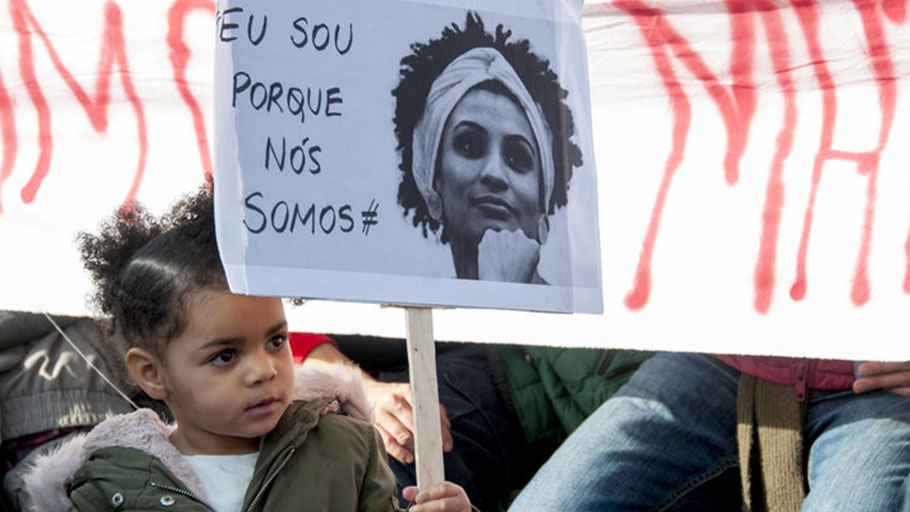
By Jurema Werneck — My sister in struggle Marielle Franco was shot to death on March 14. I was abroad, working alongside other brave women who campaign against police killings of black youth in Brazil, Jamaica and the U.S. We had joined forces and were planning to make our voices heard in order to stop the constant stream of killings committed by some of those who are supposed to protect us. The news hit…
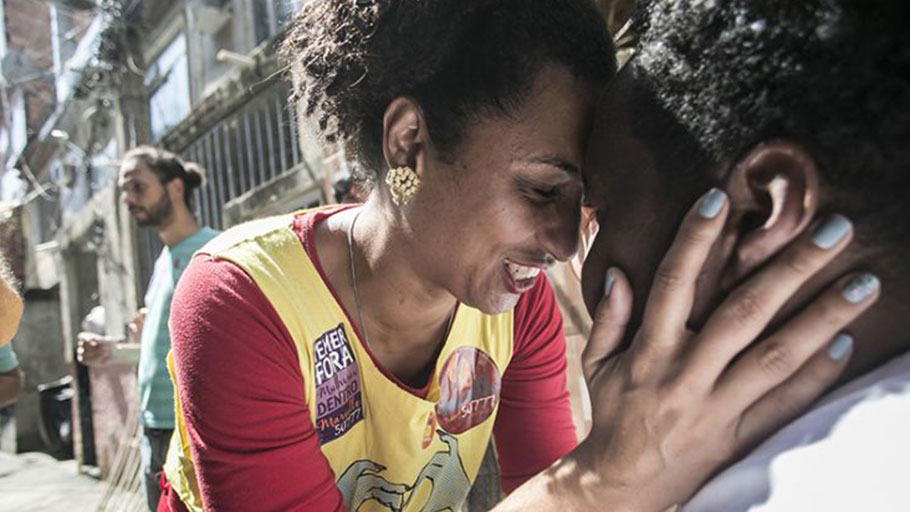
Marielle Franco represented a progressive new left, built on advocating for Brazil’s most vulnerable citizens, making her murder doubly tragic. By Gianpaolo Baiocchi, Marcelo K. Silva Boston Review — On…
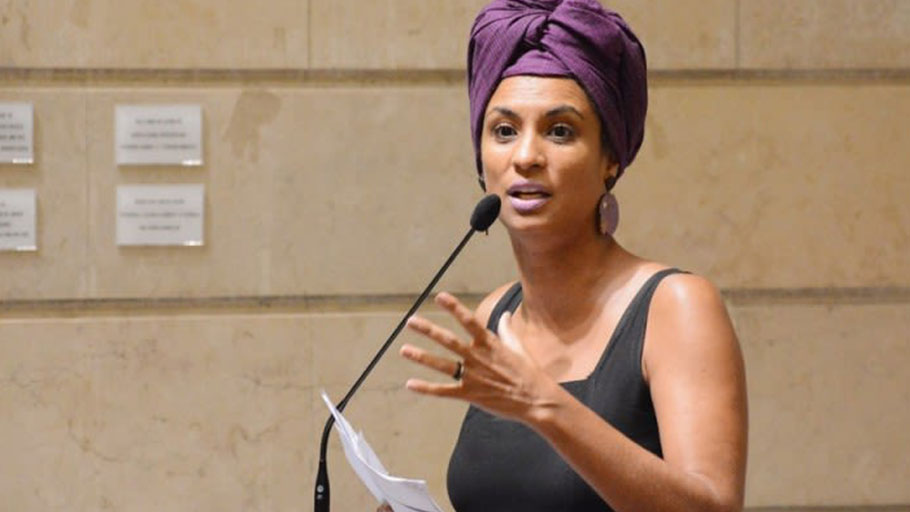
By Kiratiana Freelon — Marielle Franco, 38, a black politician from Rio de Janeiro, died fighting for the rights of women and favela dwellers. As a councilwoman from the Maré favela, she denounced the police brutality that favela residents, most of them black, regularly experienced. On Wednesday around 9:20 p.m., armed men gunned the councilwoman down in her car in the center of Rio de Janeiro with nine shots—four to…